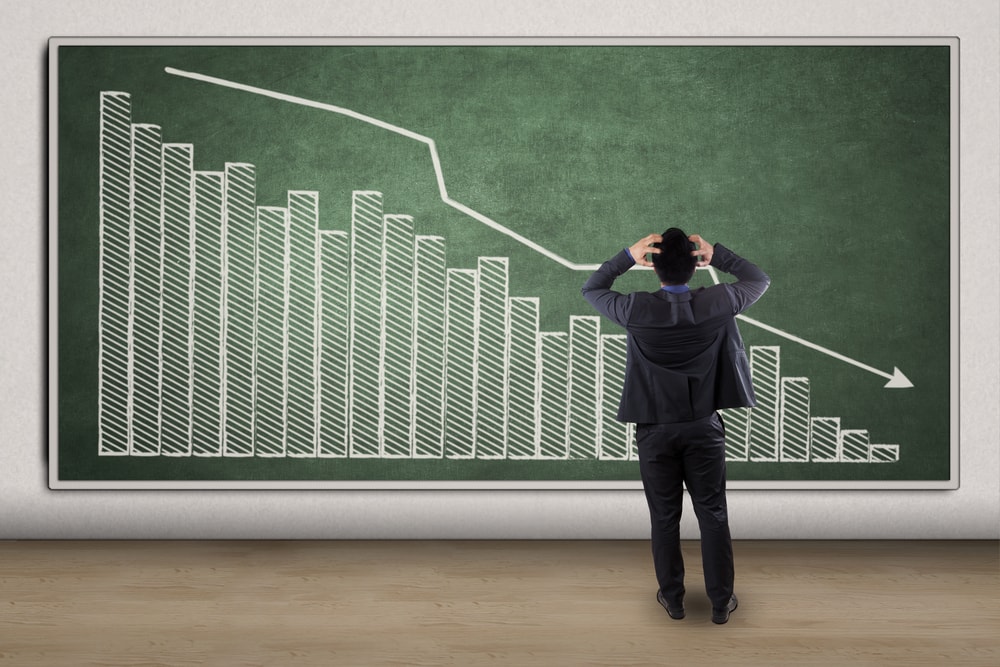Behaviors That Can Negatively Affect Your Stock Returns
Could your behavior be negatively affecting your stock portfolio performance? The answer to this question is Yes for many investors! In the finance field today, this new field of study is referred to as: “Behavioral Finance.” This field studies human behavior using a combination of economics and psychology.
Here are 4 areas of your behavior to watch out for that could hurt your stock returns:
Overconfidence
One negative behavioral trait, when investing in stocks, is overconfidence. Many investors frequently make errors in their judgment because they are highly overconfident. These investors believe that their stock-picking skills are “above average” and, that they are smarter than everyone else! Hence, they believe they have this “special” ability to choose winning stocks for their portfolio. In doing so, they have a tendency to overestimate their skills. This type of somewhat reckless behavior can be damaging to their financial results.
Many money managers also will make the wrong calls because of overconfidence. Even managers with superior abilities can have difficulty controlling their emotions and consequently, their profits may suffer. After gathering and analyzing their information these managers believe they are right even though, at times, they may not be. This type of behavior can result in a great deal of “unnecessary” trading. This overconfident attitude could also help explain why there is so much “volatility” in the market today.
Overreaction
Another important behavioral trait that can hurt an investor’s stock returns is when they overreact. The term psychologists use for this is “overreaction bias.” A perfect example of this is when the investor’s mindset is on short-term performance results. If the stock report is not good the investor overreacts and has a tendency to sell their stocks prematurely. Many times this can backfire on the investor.
Another example of investors overreacting is due to their paying too close attention to the daily news. Bad news does not always negatively affect the stock market! A prime example of this is the Coronavirus news. If an investor were to pay close attention to the market, there were actually bargains to be had during this time period.
This investor would have done better by not even monitoring their stock’s short-term performance. It is not necessary to continuously monitor your company’s stock performance. Indeed, investors sometimes are “their own worse enemies.”
I think it is important for all investors to be fully aware of these two traits when aiming for optimal results in their portfolio. When investing in stocks you do not want irrational behavior to “negatively” affect your portfolio results!
As demonstrated, psychology does, indeed, affect your investing! People are not always rational when it comes to their money, and investors, to this day, still act “irrationally.” A prime example of this is when investors panic and that is just what happened during the market downturn in 2008.
Emotions
Investor nervousness, in the 2008 stock market crash, caused many investors to panic, becoming alarmed, with many investors pulling their money out of the stock market “prematurely.” Investors dreaded the thought of losses and using their emotions, instead, moved out of stocks.
Investors strongly prefer to avoid losses rather than obtaining gains. This is referred to as “loss aversion.” Losses are a form of pain to investors. Many of these investors sold their stocks at “low” prices incurring losses in the process. Only later to see some of these “same” stocks go back up again in value! This investment behavior goes against the mantra: “Buy Low, Sell High!” And, yet many investors are guilty of doing just this!
Investors would have fared better during the above decline if they had held onto their stocks long-term. Indeed, this would have been a good time to “buy” stocks, instead, as many company’s stocks were “on sale.” This brings to mind a quote by Robert Kiyosaki: “Don’t let the fear of losing be greater than the excitement of winning.”
Impatience
Patience is a virtue when investing in stocks! Too many investors lose money by not exercising enough patience. Investors should buy-and-hold there stocks, preferably, long-term. Holding onto their stocks will maximize their returns and over time give them the advantage of compound interest.
Investors often sell their stocks when they should have held onto them. If you are invested in a quality company with good fundamentals you should try to stay the course. An investor should expect swings in the market and just because a stock goes down temporarily is no reason to sell a good company’s stock. It is very important to exercise patience when investing in the stock market.
In conclusion, the field of behavioral finance proves that an investor’s behavior can “negatively” affect their stock portfolio’s performance! Hence, the psychology of investors acting irrationally and misjudgment does come into play when investing! Investors should not be overconfident or overreact with their stock picks!
Investors should set their emotions aside and rely instead on analyzing their company’s statistics. This analysis should be done periodically to note any changes in the company’s stock. Investors shouldn’t let their emotions get the better of them! This type of behavior can hurt an investor’s stock returns! It is important for investors to act intelligently, invest long-term, be patient, and try not to panic during market declines.
Often, the investor’s worse enemy in the stock market is themselves. I might add: You can’t control the market…But, you can control your investment behavior!







